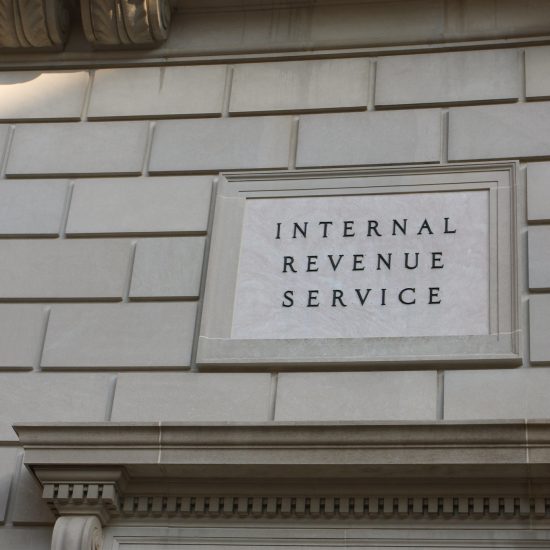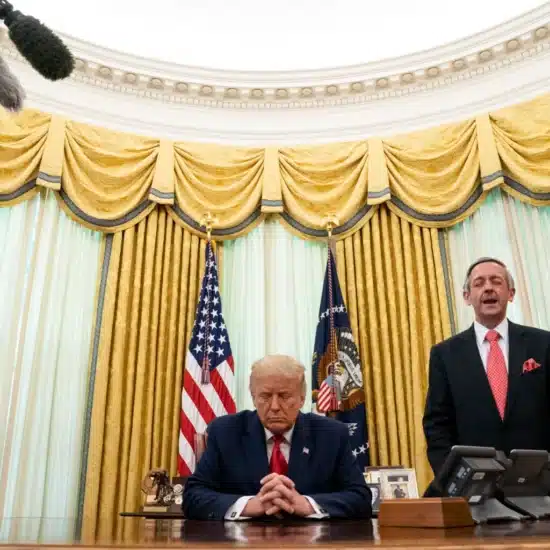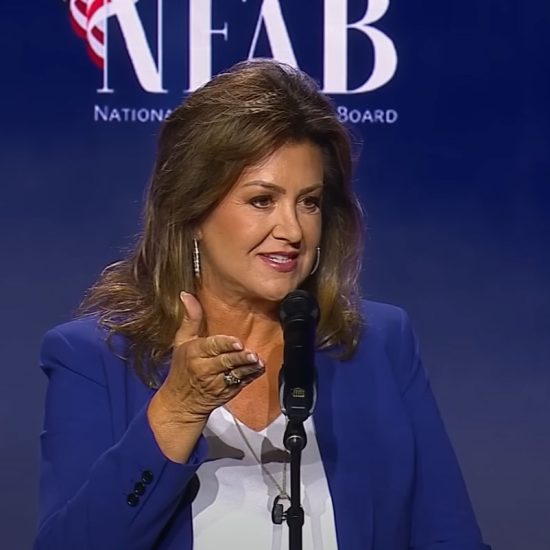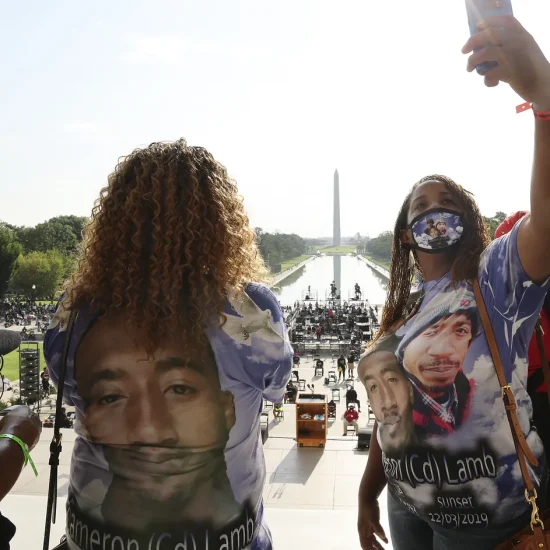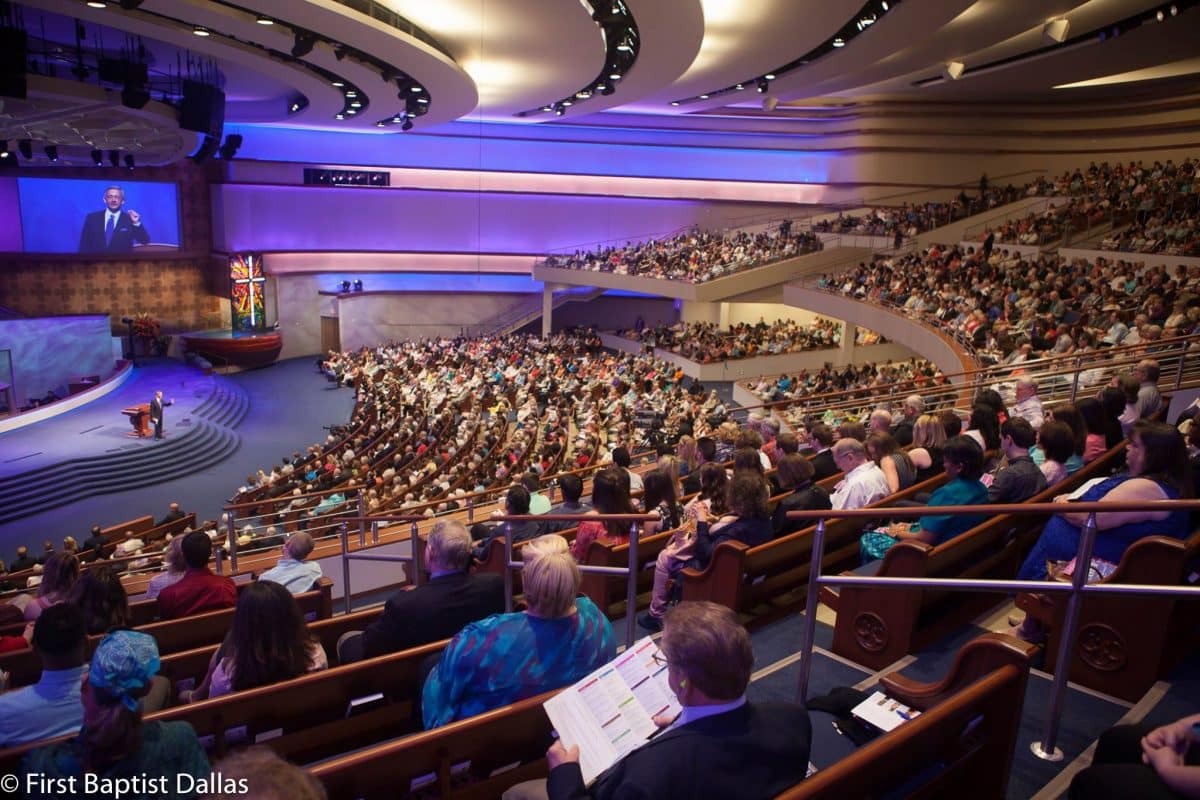
As governmental and health officials across the U.S. warned last week about the need for social distancing, reductions of mass gatherings, and other measures to prevent the spread of coronavirus in the U.S., some pastors openly scoffed at the suggestions to cancel — but now even many of those pastors have announced moving to online worship for the next few weeks. Some of the pastors — including Baptists — previously dismissive of coronavirus concerns are among top religious advisers to President Donald Trump.
As of March 17, more than 196,000 people globally have been infected, with more than 7,900 dead. In the U.S., the country with the eighth-highest number of infected persons, more than 5,800 have tested positive and about 100 have died. Health officials, however, warn that the U.S.’s low rate of testing means the virus may have already spread much more than indicated by those numbers.
Mass gatherings like church worship could spread coronavirus as people are in close quarters, breathing the same air, and often greeting one another or touching the same items like door handles and offering plates. An analysis earlier this month of the coronavirus outbreak in South Korea found that the 31st person to test positive sparked more than 1,000 new cases after attending church services. That analysis also suggested the spiraling infections might mean as many as 80 percent of the country’s cases at the time could be traced to that one person.
Despite the examples in other countries and the warnings of many U.S. health and governmental officials, some pastors boasted over the weekend that they would continue with their large, in-person worship services.
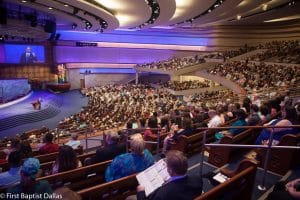
A worship service at First Baptist Church in Dallas as Robert Jeffress preaches. (First Baptist Dallas)
Robert Jeffress, pastor of First Baptist Church in Dallas, Texas, and a member of Trump’s evangelical advisory council, insisted last week he would not give into “pandemic panic” and cancel in-person services. After local officials banned gatherings of more than 500 people, his megachurch rearranged services to spread them out across the megachurch’s campus in groups of under 500.
“I know some people are saying, ‘The NBA is canceling games, why don’t you cancel church services?’” Jeffress told Dallas TV station KDFW. “Respectfully, what we do is more important than what the NBA is doing. That’s entertainment, and that’s optional. Worship is essential.”
However, after holdings services on Sunday (March 15), the church said the next day they would “suspend all programming, including worship services and Sunday School, effective immediately, until further notice.” The announcement included an invitation for people to “join us online to worship together live.”
Similarly, Guillermo Maldonado, pastor at the King Jesus International Ministry in Miami, Florida, that in January hosted the launch event of “Evangelicals for Trump,” last week dismissed coronavirus fears as a “demonic spirit” and said people would be safe at church despite what officials say.
“Do you believe God would bring his people to his house to be contagious with the virus? Of course not,” Maldonado said. “If we die, we die for Christ. If we live, we live for Christ, so what do you lose?”
An update from the church on March 16 listed precautions the church would take but did not yet cancel upcoming services.
Thomas Road Baptist Church in Lynchburg, Virginia, led by Jonathan Falwell not only held in-person services Sunday but also continued with a conference Saturday that attracted thousands. The men’s conference included speakers like Tim Tebow, and was billed as helping men “take back their biblical manhood.” The church has not yet announced plans beyond March 16.
Falwell’s brother, Jerry Falwell Jr., leads nearby Liberty University, a Baptist school. Falwell Jr., another member of Trump’s evangelical advisory council, initially criticized those who suggested his school should stop on-campus classes like other colleges across the country. On March 13, he claimed “so many are overacting” to coronavirus, suggesting the “hype” was for “political reasons” as the “next attempt to get Trump.” He even suggested, without evidence, on that Fox News interview that the virus might be an attack from North Korea.
After a father of three Liberty students criticized Falwell on Twitter for keeping the school open, Falwell on Sunday called the father a “dummy.” The next day, however, Falwell reversed course and said the school would shift courses to an online format.
Some pastors also noted pushback from congregants about canceling. Josh King, lead pastor at Second Baptist Church in Conway, Arkansas, told the Washington Post that he and some other pastors in the town canceled but not everyone agreed with the decisions.
“In your more politically conservative regions, closing is not interpreted as caring for you. It’s interpreted as liberalism, or buying into the hype,” King said. “One pastor said half of his church is ready to lick the floor, to prove there’s no actual virus.”
Across the country more church cancellations of in-person worship services are expected as the CDC and state and local officials lower the recommended — or even allowed — size of mass gatherings. However, while some officials — like Ohio Republican Governor Mike DeWine and Washington Democratic Governor Jay Inslee — have worked aggressively to enact measures to stop the spread of coronavirus, others have been slower to act.
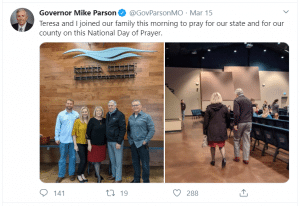 On Sunday, Missouri Governor Mike Parson posted photos of himself attending a large church service to note on social media that he was participating in the National Day of Prayer called for by Trump in light of the outbreak. However, Parson’s own church — First Baptist Church in Bolivar, Missouri — announced on March 13 it would cancel in-person services and switch to a livestream after consultation with local medical professionals. Rather than participate in the livestream, Parson instead visited another nearby Baptist church, River Bluff Fellowship in Ozark — which is in the county that at the time had half of Missouri’s confirmed coronavirus cases.
On Sunday, Missouri Governor Mike Parson posted photos of himself attending a large church service to note on social media that he was participating in the National Day of Prayer called for by Trump in light of the outbreak. However, Parson’s own church — First Baptist Church in Bolivar, Missouri — announced on March 13 it would cancel in-person services and switch to a livestream after consultation with local medical professionals. Rather than participate in the livestream, Parson instead visited another nearby Baptist church, River Bluff Fellowship in Ozark — which is in the county that at the time had half of Missouri’s confirmed coronavirus cases.
Trump tweeted Sunday morning he was watching the livestream of a sermon by Jentezen Franklin at Free Chapel in Gainesville, Georgia. Franklin serves on Trump’s evangelical advisory council.
Parson’s office did not respond to Word&Way’s request for comment as to why he went to a church instead of participating in his church’s livestream. The office also did not respond to a question about if he would now avoid in-person church gatherings of larger than 10 persons, a limit on mass gatherings he suggested Sunday evening after the CDC urged that level of restriction.

